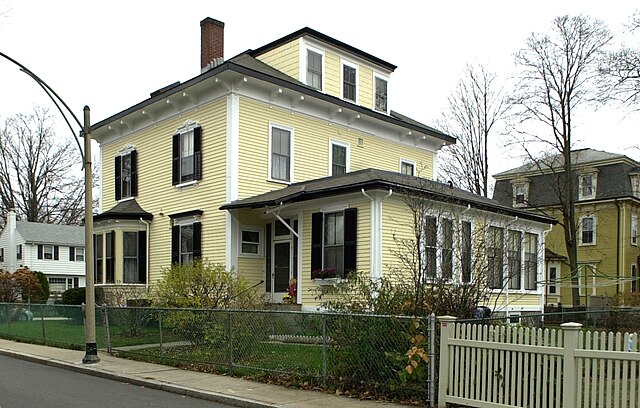Ellen Henrietta Swallow Richards was an American industrial and safety engineer, environmental chemist, and university faculty member in the United States during the 19th century. Her pioneering work in sanitary engineering, and experimental research in domestic science, laid a foundation for the new science of home economics. She was the founder of the home economics movement characterized by the application of science to the home, and the first to apply chemistry to the study of nutrition.
Richards c. 1890s From The Life of Ellen H. Richards by Caroline L. Hunt, 1912
Ellen Swallow Richards
Daguerreotype of Ellen Henrietta Swallow, c. 1848
Old Westford Academy
Environmental chemistry is the scientific study of the chemical and biochemical phenomena that occur in natural places. It should not be confused with green chemistry, which seeks to reduce potential pollution at its source. It can be defined as the study of the sources, reactions, transport, effects, and fates of chemical species in the air, soil, and water environments; and the effect of human activity and biological activity on these. Environmental chemistry is an interdisciplinary science that includes atmospheric, aquatic and soil chemistry, as well as heavily relying on analytical chemistry and being related to environmental and other areas of science.
White bags filled with contaminated stones line the shore near an industrial oil spill in Raahe, Finland





